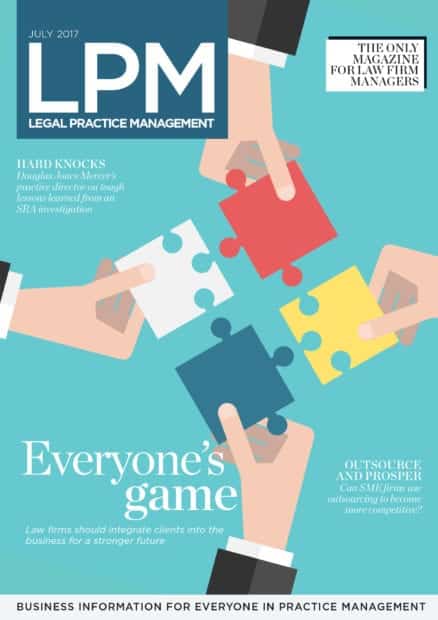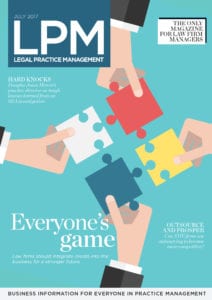

July 2017
Everyone’s game
Law firms should integrate clients into the business for a stronger future
FEATURES

Could SME firms benefit from moving ownership of clients from partners to the business? Patrick Wingrove reports

Barry Davies at Swansea firm Douglas Jones Mercer, tells Patrick Wingrove about the lessons he learned when his firm was investigated by a legal regulator

Phil Snee at Linetime speaks about attaining competitive advantage with better collaboration, between colleagues and with clients

Wayne Johnson at Encompass speaks to LPM about how firms can ensure compliance with the EU’s Fourth Anti-Money Laundering Directive at a reduced cost


 GET YOUR COPY NOW
GET YOUR COPY NOW








